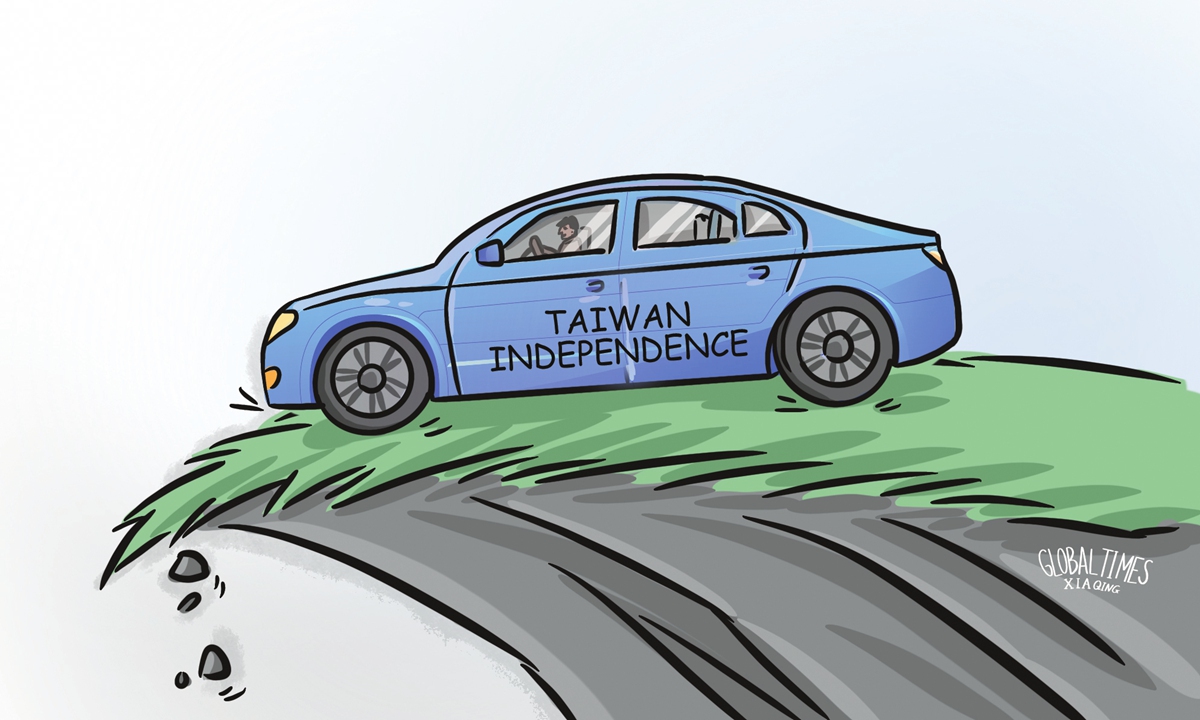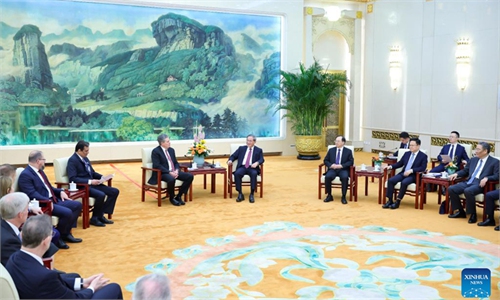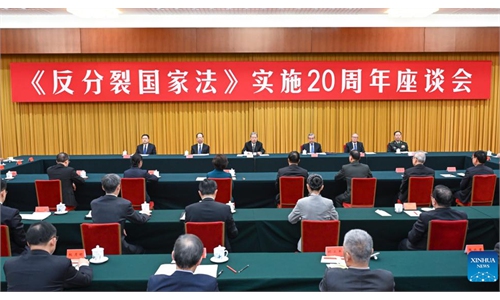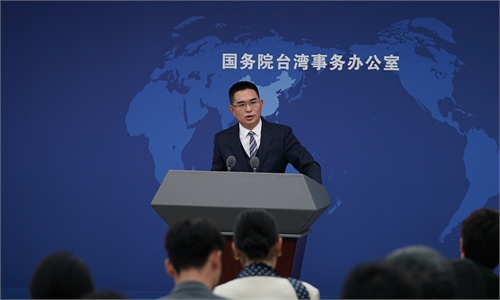Trump’s ‘unification’ remarks trigger unease among DPP, as it fears of becoming a discarded pawn: expert

Illustration: Xia Qing/GT
US President Donald Trump's remarks related to "unification" appeared to have rattled the secessionist Democratic Progressive Party (DPP), as Reuters reported that "some government and diplomatic circles in Taiwan" grow concerned over whether US policy toward the island had changed.
Washington and Beijing on Monday agreed to slash steep tariffs for at least 90 days, pausing their trade war, a move Trump praised when speaking to reporters at the White House, Reuters reported on Tuesday.
"They've agreed to open China, fully open China, and I think it's going to be fantastic for China, I think it's going to be fantastic for us, and I think it's going to be great for unification and peace," Trump said, according to the Reuters report.
Although Trump didn't mention Taiwan, his remark triggered a discussion on the island of Taiwan, with some Taiwan independence-minded organizations expressing obvious unease over the matter.
Trump's remarks "created concern in some government and diplomatic circles in Taiwan" over whether US policy toward the island had changed, seven sources told Reuters.
On Tuesday, American Institute in Taiwan (AIT) released a statement toward this matter, claiming that Trump's comment on "unification" was about the US-China trade relationship. "It's clear President Trump was speaking in the context of the US-China trade relationship," a spokesperson said, Reuters reported.
Whenever there are developments in China-US relations, the DPP has become highly jittery and grows nervous, fearing it will be abandoned by the US and turned into a discarded pawn, Li Zhenguang, deputy director at the Institute of Taiwan Studies at Beijing Union University, told the Global Times on Tuesday.
As instigators of trouble who have failed to properly manage cross-Straits relations, they panic at the slightest sign of change, Li added.
Karen Kuo, a spokesperson from the Taiwan regional leader office also responded to the matter on Tuesday, claiming that the US State Department had clarified that Trump's remarks were directed at US-China trade relations and did not involve the Taiwan question. "US commitments to Taiwan remain strong and have not changed in any way," Kuo asserted, according to Taiwan media outlet Liberty Times Net.
DPP falls into a state of anxiety and seeks reassurance from the US, this reflects the DPP's lack of capability and confidence, said Zhang Wensheng, deputy dean of the Taiwan Research Institute at Xiamen University.
According to a recent Brookings Institution poll, conducted from February to April, when asked whether the US was a "trustworthy" or "very trustworthy" ally, just 23.1 percent of respondents in Taiwan answered that it is. This is down from 33.6 percent last year. The proportion of respondents who viewed the US either very positively or positively decreased by 20.8 percent in Taiwan, according to the poll, the Xinhua News Agency reported on April 30.
Taiwan-based China Times cited analysis by senior media professionals, noting that the Lai Ching-te administration's overreaction highlights its anxiety. During the ongoing China and US trade talks, DPP authorities fear their interests may be sold out.
The DPP authorities' response underscores their nervousness, as they dread the Chinese mainland and the US reaching a preliminary consensus - contrary to DPP' s daydreaming of continued confrontation.



